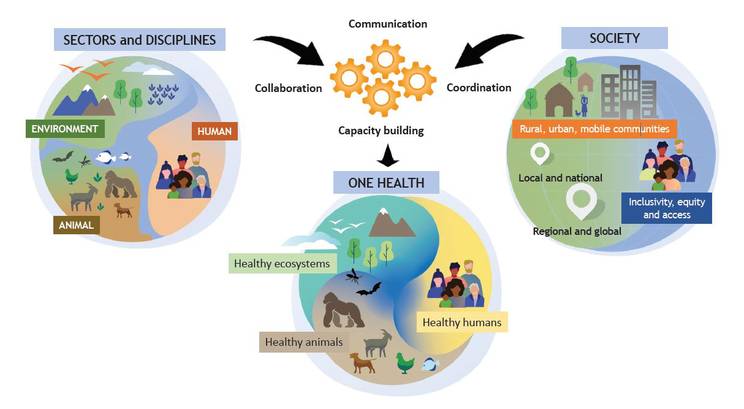
Revolutionizing Healthcare: The Dynamics of Connected Health Ecosystems
In the ever-evolving landscape of healthcare, the emergence of connected health ecosystems marks a pivotal shift, transforming the way individuals access, manage, and receive healthcare services. This interconnected approach leverages technology to create a seamless, patient-centric healthcare experience, fostering collaboration among healthcare providers, patients, and various stakeholders.
Interconnected Data: The Foundation of Connected Health
At the core of connected health ecosystems is the seamless exchange of health data among different components of the healthcare system. Electronic health records, wearables, remote monitoring devices, and other digital tools contribute to a comprehensive health data ecosystem. This interconnected data forms the foundation for informed decision-making, personalized treatments, and a holistic understanding of an individual’s health.
Patient-Centric Care: Empowering Individuals in Their Health Journey
Connected health ecosystems prioritize patient-centric care by placing individuals at the center of their healthcare journey. Patients can actively participate in their care through access to their health records, personalized health insights, and communication with healthcare providers. This shift towards patient empowerment contributes to a more engaged and informed healthcare consumer.
Telehealth Integration: Seamless Access to Healthcare Services
Telehealth is a significant component of connected health ecosystems, offering individuals the ability to access healthcare services remotely. Through virtual consultations, telehealth bridges geographical gaps, providing timely and convenient access to healthcare professionals. This integration ensures that individuals can seek medical advice, follow-up appointments, and even receive certain treatments from the comfort of their homes.
Wearable Technology: Monitoring Health in Real-Time
Connected health ecosystems leverage wearable technology to monitor health in real-time. From fitness trackers to smartwatches with health sensors, these wearables collect valuable health data, including heart rate, activity levels, and sleep patterns. The continuous monitoring enables proactive healthcare interventions, early detection of health issues, and personalized recommendations for maintaining overall well-being.
Data Security and Privacy: Safeguarding Patient Information
With the interconnected nature of health data, ensuring robust security and privacy measures is paramount. Connected health ecosystems prioritize the protection of patient information through advanced encryption, secure data storage, and adherence to healthcare privacy regulations. Building and maintaining trust in the security of health data is foundational to the success of connected healthcare.
Interoperability Challenges: Bridging Gaps for Seamless Integration
Interoperability challenges arise when integrating diverse components of the healthcare ecosystem, such as electronic health records, devices, and telehealth platforms. Efforts are underway to establish standardized protocols and frameworks to ensure seamless interoperability. Overcoming these challenges is crucial for creating a truly connected healthcare experience.
Population Health Management: A Holistic Approach to Well-Being
Connected health ecosystems facilitate population health management by aggregating and analyzing health data on a larger scale. This approach allows healthcare providers and public health agencies to identify trends, address health disparities, and implement targeted interventions to improve the health of communities. Population health becomes a key focus for achieving broader healthcare goals.
Enhanced Care Coordination: Breaking Down Silos in Healthcare
Care coordination is a central theme in connected health ecosystems, aiming to break down silos in healthcare delivery. Through shared health records, communication platforms, and collaborative tools, healthcare professionals can work seamlessly together, ensuring that patient information is accessible across various points of care. This cohesive approach contributes to improved healthcare outcomes.
Future Perspectives: Innovations Shaping Connected Health
As technology continues to advance, the future of connected health ecosystems holds exciting innovations. Artificial intelligence, machine learning, and predictive analytics are anticipated to play significant roles in optimizing healthcare delivery. The ongoing evolution of connected health promises continuous improvements in personalized medicine, preventive care, and the overall efficiency of the healthcare system.
In conclusion, connected health ecosystems represent a transformative paradigm in healthcare delivery, fostering a more connected, patient-centric, and efficient healthcare experience. By leveraging technology to interconnect various components of the healthcare landscape, these ecosystems aim to enhance accessibility, improve health outcomes, and empower individuals in their health journey.
For more information on connected health ecosystems, visit CentrumZdravi.org.

